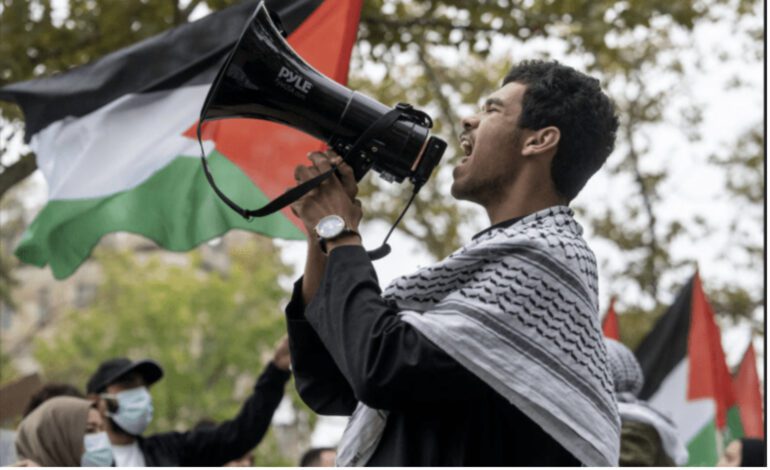ANN ARBOR – A growing coalition of University of Michigan faculty members has united to confront what they see as the university administration’s inadequacies in crisis response concerning the challenges faced by Palestinian, Arab and Muslim students and staff within the campus community. This collective action follows “biased” statements from the administration over the past five months, coupled with numerous appeals for action from members of the pro-Palestinian community, which have yielded minimal results.
On Oct. 10, 2023, U of M’s President Santa Ono released a “statement regarding Mideast violence” following Hamas’ Oct. 7 attack on Israeli citizens. In the statement, which Ono began with “violence is never the answer”, he expressed that he reached out to universities in Israel to express his concern for students, with zero mention of Gaza or Palestine or the Palestinian lives lost at the hands of Israel.
Since then, the university administration has been criticized for its lack of response to issues affecting Palestinian, Arab and Muslim communities within the university and its failure to protect pro-Palestinian students and staff from hate and violent threats.
After more than five months now of ongoing violence in Gaza, Ono has barely expressed concern for the more than 32,000 Palestinian lives lost. Another statement on Dec. 5 regarding “ongoing campus tensions” disallowed voting on two “controversial and divisive” Central Student Government resolutions related to the conflict.
On Sunday, U of M’s Honors Convocation was disrupted by student activists calling for the university to divest funds in Israel. Many were angered at the protest, although it didn’t begin until the end of the ceremony after all student awards were given out.
Following the recent event, the university proposed a policy on Wednesday that states “no one has the right to infringe on the exercise of others’ speech and activities by disrupting the normal celebrations, activities and operations of the University.” Feedback on the proposal is currently being accepted from Ann Arbor campus students, faculty and staff members until April 3.
On Wednesday, U of M faculty members released a report, the 2024 Palestinian, Arab and Muslim U-M Communities’ Survey, which highlights key concerns about the university’s response to the conflict, including one-sided communications, discrimination and a demand for action.
Key Findings:
- 90 percent of respondents express dissatisfaction with the university’s communications regarding Gaza, and 89 percent deem the university’s efforts to combat Islamophobia as inadequate.
- 50 percent of the surveyed faculty and staff have contemplated leaving the university due to its treatment or messaging regarding Palestinians.
- 78 percent of respondents show demand for a structured U of M Strategy to combat Islamophobia and anti-Palestinian racism.
“Institutional behavior has been one-sided and unequal, fostering an environment where anti-Palestinian and anti-Arab sentiments are normalized, while structural Islamophobia is allowed to proliferate unchecked,” the report states. “Among the thousands of U-M’s Muslim, Arab and Palestinian community members, there exists a pervasive sentiment of being neglected and endangered by an institution that appears indifferent to their fundamental rights to a secure and dignified working and learning environment.”
In the survey, 90 percent of respondents expressed dissatisfaction with the university’s communications regarding Gaza, and 89 percent deemed the university’s efforts to combat Islamophobia as inadequate.
Of the 308 respondents who represent faculty and staff, 50 percent have contemplated leaving the university due to its treatment or messaging regarding Palestinians.
The survey was conducted online from March 17-21 and represents U of M students, alumni, faculty and staff, and parents and community members among the university’s anti-Islamophobia and pro-Palestinian communities.
Overall, 78 percent of respondents desire a structured U of M Strategy to combat Islamophobia and anti-Palestinian racism.
The faculty coalition is calling on the university administration to conduct formal assessments that engage with the needs and priorities of Palestinian, Arab and Muslim constituents. Emphasizing the importance of fostering an inclusive and supportive environment for all members of the university community, they urge the administration to take tangible steps toward addressing these pressing issues.
– Metro Times. Edited for style.






Leave a Reply